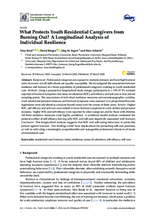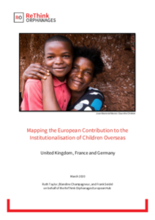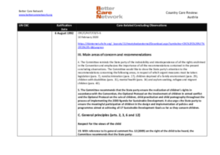

Displaying 101 - 110 of 424
This study investigated the association between resilience and burnout in a Swiss population of professional caregivers working in youth residential care.
This study addresses the ethnic identity of transculturally placed adolescent foster youth with ethnic minority backgrounds in The Netherlands. The authors conducted qualitative interviews to provide insight into the lifeworlds of twenty foster youth. They found that constructing an ethnic identity was complex for these ethnic minority foster youth.
This qualitative study explores the experiences of unaccompanied children with regard to violence in reception facilities in the Netherlands from the perspective of the children.
This qualitative study explores the experiences of unaccompanied children with regard to violence in reception facilities in the Netherlands from the perspective of the children.
The aim of this study is to explore the experiences of former unaccompanied refugee children and unaccompanied refugee children, their carers and social workers with regard to the foster placement.
Significant anecdotal evidence suggests that other countries across Europe also make a considerable contribution to the supply chain of people, money and resources that continue to sustain and foster the orphanage industry worldwide. This report seeks to map the contribution of the three countries in Europe with the largest volunteer travel markets: The United Kingdom, Germany and France.
The third Netherlands’ Prevalence study of Maltreatment of children and youth (NPM-2017) provides an update of the current prevalence rates of child maltreatment and of changes in its prevalence over the last 12 years. In addition, risk factors for child maltreatment and its co-occurrence with domestic violence were investigated.
The purposes of this study are to document and analyse the point of view of children in foster families on their subjective well‐being and also to identify contextual factors that influence it.
The purposes of this study are to document and analyse the point of view of children in foster families on their subjective well‐being and also to identify contextual factors that influence it.
This country care review includes the care related Concluding Observations adopted by the Committee on the Rights of Persons with Disabilities and the Committee on the Rights of the Child.



